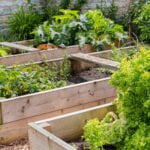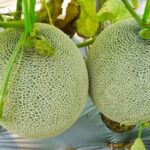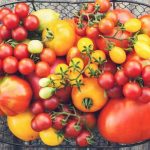Is mulch good to put in vegetable gardens? This is a common question among gardeners seeking to optimize the growth and health of their vegetable plants. Mulch plays a crucial role in maintaining the vitality of vegetable gardens by providing numerous benefits to both the plants and the soil. From weed suppression to moisture retention, mulch serves as a valuable tool for enhancing the overall productivity of vegetable gardens.
When it comes to vegetable gardening, the choice of mulch can greatly impact the success of the crops. Understanding the different types of mulch available, such as organic and inorganic options, and their suitability for various vegetable plants is essential for maximizing their potential. Knowing how to properly apply and maintain mulch, as well as which materials to avoid, are also important considerations for gardeners looking to incorporate this practice into their gardening routine.
In this article, we will explore the significance of using mulch in vegetable gardens and delve into its various benefits. We will also provide insights from gardening experts on best practices for using mulch and showcase real-life examples of thriving vegetable gardens that have benefited from the addition of mulch. By the end, you will have a comprehensive understanding of why mulch is indeed good to put in your vegetable garden for a thriving and healthy harvest.
Types of Mulch for Vegetable Gardens
When deciding on the type of mulch to use in your vegetable garden, it is important to consider the specific needs of the plants you are growing. Organic mulches, such as straw, wood chips, and compost, offer numerous benefits for vegetable gardens. They help improve soil fertility, retain moisture, and suppress weed growth.
Inorganic mulches, such as plastic or rubber, also have their advantages including long-lasting weed suppression and moisture retention. However, they may not contribute to soil health and fertility like organic mulches do.
For vegetable plants that thrive in cooler temperatures and require consistent moisture levels in the soil, organic mulches are often a better choice. Examples of such plants include lettuce, spinach, and broccoli. Straw or shredded leaves can be excellent options for these types of vegetables due to their ability to maintain soil moisture levels and prevent rapid temperature fluctuations.
On the other hand, vegetable plants that prefer warmer temperatures and well-drained soil may benefit from inorganic mulches. Tomato plants are a good example of this type as they thrive with the added warmth provided by materials like black plastic mulch. Additionally, hardier crops like peppers or eggplants could also benefit from the heat-retaining properties of inorganic mulch in cooler climates.
It’s important to note that individual gardeners may have unique considerations based on their climate and specific growing conditions. Therefore, it is advisable to experiment with different types of mulch to determine which works best for your vegetable garden based on its unique requirements.
| Type of Mulch | Suitability for Vegetable Plants |
|---|---|
| Organic (straw) | Ideal for lettuce, spinach, broccoli |
| Inorganic (plastic) | Better for tomato plants and heat-loving crops |
Benefits of Mulch in Vegetable Gardens
Mulch is a crucial component in vegetable gardens, providing various benefits that contribute to the overall health and yield of the plants. Understanding the advantages of using mulch can help gardeners make informed decisions about incorporating this practice into their gardening routine. Some key benefits of mulch in vegetable gardens include:
- Weed suppression: Mulch serves as a natural barrier that inhibits weed growth by blocking sunlight and preventing weed seeds from germinating. This helps reduce the need for frequent weeding, saving time and effort for gardeners.
- Moisture retention: One of the most significant advantages of using mulch is its ability to retain soil moisture. By covering the soil with a layer of mulch, evaporation is minimized, and water is preserved, ensuring that vegetable plants have consistent access to the hydration they need for healthy growth.
- Temperature regulation: Mulch acts as insulation for the soil, helping to moderate temperature fluctuations. This is particularly beneficial for vegetable gardens in regions with extreme weather conditions, as it protects the roots of plants from heat stress during hot periods and provides warmth during colder spells.
In addition to these primary benefits, mulch also contributes to improved soil structure and fertility over time. As organic mulch materials decompose, they add valuable nutrients to the soil, enhancing its quality and promoting a thriving ecosystem for vegetables to flourish. By understanding these advantages, gardeners can appreciate the importance of incorporating mulch into their vegetable gardening practices.
Properly applying mulch plays a vital role in reaping its benefits to the fullest extent. Gardeners should ensure an adequate layer of mulch is spread evenly across the soil surface while avoiding direct contact with plant stems or trunks. By following best practices for applying mulch in vegetable gardens, individuals can create an optimal environment for their plants to thrive and establish healthy produce for harvest.
How to Apply Mulch in Vegetable Gardens
When it comes to applying mulch in vegetable gardens, the proper technique is crucial to ensure that the plants receive maximum benefits. Here are some step-by-step guidelines for applying mulch properly in your vegetable garden:
1. Prepare the soil: Before applying mulch, it is important to prepare the soil by removing any weeds and debris. This will ensure that the mulch can have direct contact with the soil and provide better insulation and moisture retention.
2. Choose the right type of mulch: Depending on your specific vegetable plants, choose the appropriate type of mulch that would best suit their needs. Organic options such as straw, grass clippings, or compost are beneficial for improving soil fertility, while inorganic options like plastic or landscape fabric can aid in weed suppression.
3. Apply a layer of mulch: Once you have selected the suitable type of mulch, apply a layer around 2-4 inches thick around the base of your vegetable plants. Be careful not to pile up the mulch directly against plant stems as this can lead to rot or disease.
4. Replenish regularly: Over time, organic mulches decompose and break down, so it’s essential to replenish them regularly to maintain their effectiveness. Check the thickness of the mulch layer every few months and add more as needed.
By following these simple steps, you can ensure that your vegetable garden receives all the benefits that proper mulching provides, including weed suppression, moisture retention, and temperature regulation for healthy and thriving plants.
Mulch Materials to Avoid in Vegetable Gardens
When selecting mulch materials for your vegetable garden, it’s important to be mindful of certain types that may have adverse effects on the plants. Some mulch materials can introduce harmful chemicals or substances into the soil, which can negatively impact the health and growth of your vegetable plants.
One type to avoid is black walnut tree leaves or twigs, as they contain a chemical called juglone that can be toxic to many vegetables, such as tomatoes, peppers, and potatoes. Another material to steer clear of is dyed mulch, which often contains artificial colorants and chemicals that could leach into the soil and potentially harm the vegetables.
In addition to potential toxicity, some types of mulch materials may also have a high carbon-to-nitrogen ratio, which could lead to nitrogen depletion in the soil as they break down. For example, sawdust and wood chips are notorious for their ability to tie up nitrogen during decomposition, making them less suitable for vegetable gardens unless properly aged or combined with other nitrogen-rich materials.
Similarly, using grass clippings from lawns treated with herbicides should be avoided due to the risk of transferring these chemicals to the vegetable garden.
By being cautious with your choice of mulch materials for the vegetable garden, you can ensure a safe and healthy environment for your plants while reaping all the benefits that mulching has to offer.
| Mulch Material | Potential Harm |
|---|---|
| Black Walnut Tree Leaves or Twigs | Toxicity from juglone |
| Dyed Mulch | Artificial colorants and chemicals leaching into soil |
| Sawdust/Wood Chips | Nitrogen depletion during decomposition |
| Grass Clippings (from treated lawns) | Risk of transferring herbicides to garden |
Mulch Maintenance in Vegetable Gardens
Mulch maintenance is a crucial aspect of ensuring the health and productivity of vegetable gardens. Once mulch has been applied to the garden, it is important to regularly maintain and replenish it to maximize its benefits for the plants and soil.
Why Mulch Maintenance Matters
Regular maintenance of mulch in vegetable gardens helps in preserving the soil moisture, regulating temperature, suppressing weed growth, and preventing erosion. Mulch also contributes to improving soil fertility as it decomposes over time. By maintaining a healthy layer of mulch, gardeners can create an environment that is conducive to the growth of their vegetable plants.
Replenishing Mulch
As mulch breaks down and decomposes over time, it is essential to replenish it in order to maintain its effectiveness. Regularly adding a fresh layer of mulch on top of the existing one helps in retaining soil moisture, inhibiting weed growth by smothering weed seeds, and providing insulation against extreme temperatures.
Best Practices for Mulch Maintenance
Gardeners should monitor the condition of their mulch regularly and replenish it as needed. It’s important to choose high-quality mulch materials that are suitable for the specific needs of the vegetable plants being grown. Additionally, avoiding compacted layers of mulch ensures that air and water can still penetrate through to reach the soil beneath.
By following proper mulching practices and making maintenance a priority, gardeners can ensure that their vegetable gardens thrive with healthy plants and bountiful harvests throughout the growing season.
Case Studies and Success Stories
Increased Crop Yield
Several vegetable gardens have reported significant increases in crop yield after incorporating mulch into their gardening practices. By using organic mulch such as straw or compost, gardeners have observed healthier plants with a higher production of fruits and vegetables. The layer of mulch has helped in retaining moisture, regulating soil temperature, and suppressing weed growth, all of which contribute to the improved yield.
Improved Soil Health
Before the application of mulch, some vegetable gardens struggled with poor soil quality, leading to stunted plant growth and nutrient deficiencies. However, after implementing a proper mulching regimen, these gardens saw a remarkable transformation in their soil health. The organic matter from the decomposed mulch added valuable nutrients to the soil, encouraging earthworm activity and beneficial microorganisms. This resulted in a more fertile and balanced growing environment for the vegetable plants.
Weed Suppression and Reduced Maintenance
One common issue faced by many vegetable gardeners is the relentless battle against weeds that compete with the desired plants for nutrients and resources. Through the use of mulch, particularly when applied at an adequate thickness, these gardens experienced a significant reduction in weed growth. As a result, gardeners spent less time pulling weeds and performing maintenance tasks, allowing them to focus on other aspects of tending to their thriving vegetable gardens.
These success stories serve as evidence of the positive impact that mulch can have on vegetable gardens, providing inspiration for others looking to improve their own gardening outcomes through the use of this simple yet effective technique.
Expert Tips and Recommendations
Gardening experts have long hailed the benefits of using mulch in vegetable gardens, emphasizing its role in promoting healthy plant growth and improving soil quality. One of the key recommendations from these experts is to choose the right type of mulch for specific vegetable plants.
For example, organic mulches such as straw or compost are suitable for tomatoes and peppers, while inorganic mulches like plastic sheeting may be more appropriate for melons or squash. By selecting the correct mulch material, gardeners can ensure that their vegetables receive the best possible care.
Another important insight provided by gardening experts is the proper application of mulch in vegetable gardens. It is advised to apply a layer of mulch approximately 2-3 inches thick to allow for effective weed suppression and moisture retention.
Additionally, leaving a small gap between the base of the plants and the mulch helps prevent potential issues with pest infestations or disease. These tips can significantly contribute to the overall success of a vegetable garden when using mulch as a beneficial tool.
Furthermore, gardening experts stress the significance of regular mulch maintenance in vegetable gardens. Inspecting the condition of the mulch and replenishing it when necessary ensures that the soil remains enriched and that any potential issues such as water runoff or soil erosion are minimized. By following these expert recommendations, gardeners can harness the full potential of using mulch in their vegetable gardens for optimal plant health and productivity.
Conclusion
In conclusion, it is evident that mulch is an essential addition to vegetable gardens, offering a myriad of benefits for both the plants and the soil. From organic options like straw and compost to inorganic choices such as plastic and rubber mulch, there are various types available to suit different vegetable plants and garden needs.
The advantages of using mulch in vegetable gardens, including weed suppression, moisture retention, and temperature regulation, cannot be overstated. Additionally, proper application and regular maintenance of mulch are crucial in ensuring optimal results for a thriving and healthy harvest.
Furthermore, it is important to note that while mulch provides numerous benefits, certain materials should be avoided in vegetable gardens to prevent any harm to the plants. As highlighted by gardening experts, choosing the right type of mulch and applying it correctly plays a significant role in the success of a vegetable garden.
Real-life case studies and success stories serve as testaments to the positive impact of using mulch in vegetable gardens, demonstrating noticeable improvements in plant growth and overall yields.
Overall, with expert tips and recommendations at hand, it is clear that incorporating mulch into vegetable gardens is indeed good for achieving a thriving and healthy harvest. By understanding the significance of mulch and following best practices for its use in vegetable gardening, individuals can expect improved soil quality, better plant growth, weed control, moisture conservation, temperature moderation – ultimately resulting in a bountiful harvest of fresh vegetables year after year.
Frequently Asked Questions
Should I Put Mulch on My Vegetable Garden?
Mulch is beneficial for vegetable gardens as it helps retain moisture, suppresses weeds, and regulates soil temperature. However, it’s essential to choose the right type of mulch for your vegetables and apply it correctly to avoid potential issues like mold or pests.
What Plants Don’t Like Mulch?
Some plants, like succulents and other drought-tolerant species, don’t thrive with mulch as it can retain too much moisture around their roots, leading to rot or disease. Additionally, certain plants may be sensitive to the specific type of mulch being used, so it’s important to research each plant’s individual needs before applying mulch.
Should I Put Mulch Around My Tomato Plants?
Tomato plants can benefit from a layer of mulch around their base to help regulate soil temperature and retain moisture. However, it’s crucial to keep the mulch a few inches away from the plant stems to prevent potential rot or disease.
Additionally, choosing a suitable type of mulch for tomatoes, like straw or grass clippings, can further optimize their growth and health.

If you’re looking to get into vegetable gardening, or are just looking for some tips on how to make your current garden better, then you’ve come to the right place! My name is Ethel and I have been gardening for years. In this blog, I’m going to share with you some of my best tips on how to create a successful vegetable garden.





